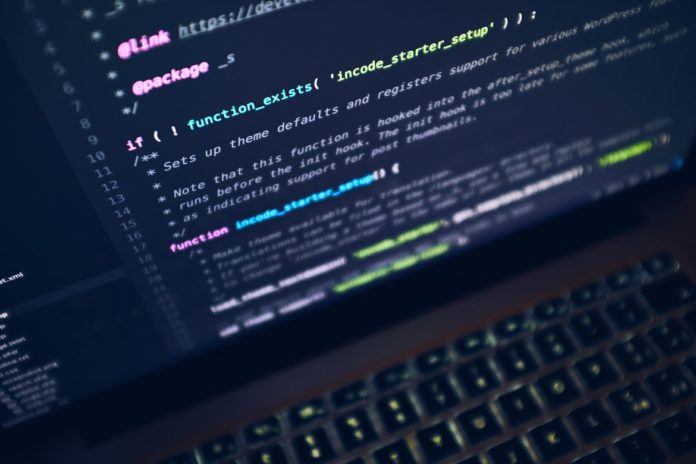

The National Institute of Justice announced in December 2021 it provided funding for two projects to address collection and processing of digital evidence in “cases involving child sexual abuse materials and large-scale computer networks,” according to an article published by the agency.
The NIJ announced funding recipients at Purdue University and the University of Rhode Island have both created software that would aid “law enforcement agencies in investigating child sexual abuse materials.”
Purdue’s File Toolkit for Selective Analysis Reconstruction “enables on-the-scene acquisition of probative data,” according to the NIJ in the Dec. 16, 2021 article. FileTSAR would also allow for detailed forensic investigation of the data “with the goal of ensuring admissible digital evidence.”
Computer networks containing “at least 5,000 devices, including computers, printers and routers — are often identified as a potential source of digital evidence in investigations ranging from terrorism to economic crimes,” according to the NIJ. FileTSAR probes these networks, gathers any probative data and maintains a chain of custody for investigators who can then complete a detailed forensic investigation of the data the software has collected.
The impact from the deployment of FileTSAR will enable the collection of digital evidence from a large network without having to seize devices or otherwise take the network offline to gather evidence, the NIJ said in an emailed comment to Law Week.
With a search warrant or granting of consent, large-scale computer networks may be a potential source of digital evidence in investigations, the NIJ said to Law Week.
Licensed versions of FileTSAR are distributed for free to law enforcement agencies, the NIJ reported. Currently, the software is licensed to 120 agencies around the world. Agencies that have implemented FileTSAR include the 308th Military Intelligence Battalion, the Nigerian Police, Portugal’s Cyber Crime Unit, the Grant County (WI) Sheriff’s Office and the United Kingdom’s Royal Navy, according to the NIJ. The NIJ noted it’s uncertain how many of the remaining 90 agencies have implemented FileTSAR and said some of the components needed to run the system are currently unavailable due to supply chain shortages.
The NIJ noted in its December article that a more easily deployable, compact version of FileTSAR “would have greater utility for the 73% of U.S. law enforcement agencies with 25 or fewer sworn officers.” The NIJ’s funding for FileTSAR went toward Purdue University’s proposal to develop FileTSAR+ An Elastic Network Forensic Toolkit for Law Enforcement, the agency said.
The University of Rhode Island’s DeepPatrol uses a mixture of machine intelligence and algorithms to help agencies investigate digital materials. Specifically, DeepPatrol deploys automated image detection, allowing investigators to reduce the amount of time they spend reviewing suspicious files. The software uses a variety of processes to increase the reliability of the automation.
Similar forensic tools to both DeepPatrol and FileTSAR are also currently in use. Child Protection System, developed by Florida nonprofit Child Rescue Coalition, scans file-sharing platforms to identify computers sharing images of the sexual abuse of children. NBC News in July 2020 reported on a 2016 case out of Florida that used the software to get a search warrant.
CRC says that the software has led to more than 12,000 arrests in the past decade. CPS is available for free to law enforcement agencies and it’s used by thousands of investigators in all 50 states and in 95 other countries. CRC also boasts a 97% conviction rate in cases where CPS was used.
In order for law enforcement to use CPS, sworn investigators need to take a four-day training course with a credentialed instructor. But the NIJ reported in December 2021 that many departments “lack proper equipment and training opportunities for officers.”
NPR reported in June 2021 that “historic calls for police accountability, reform and attempts at racial reckoning have left police departments nationwide struggling to keep the officers they have and attract new ones to the force.” Police are resigning or retiring at higher rates than previous years, making not only hiring more difficult but compounding law enforcement staffing shortages as cities experience spikes in shootings and murders.
Last year, the Denver Police Department reported 95 homicides in 2020 to Law Week — the steepest increase in almost 40 years. Seattle, a city similar in population and demographics to Denver, noted an almost 50% increase in murder and its highest number in two decades in 2020.
If DeepPatrol and FileTSAR are found to be forensically sound, the tools may be used by state, local and federal criminal justice agencies alike, the NIJ said in statements to Law Week. Whether agencies put the methods and tools into practice depends on acceptability, ease of use, and the needs of a particular agency, the NIJ noted.
“DeepPatrol may change the way law enforcement conducts forensic examinations by accelerating and streamlining efforts to identify children in videos of sexual exploitation,” the NIJ said in the December article. But the NIJ noted that reducing how long the DeepPatrol process takes is critical in making the platform a viable commercial option.
FileTSAR could aid law enforcement in getting search warrants while DeepPatrol is only intended to analyze evidence previously collected and wouldn’t impact evidence collection.
The NIJ told Law Week that determining the margin of error for automated image detection requires an independent tool validation, such as those performed by the National Institute of Standards and Technology as part of their Computer Forensic Tool Testing Program. Until tools like DeepPatrol are used regularly by law enforcement agencies, it’s not possible to speculate what changes in detection may take place, the NIJ said.
The testing noted in the NIJ’s December article is expected to be available in the spring of 2022, the agency told Law Week.

